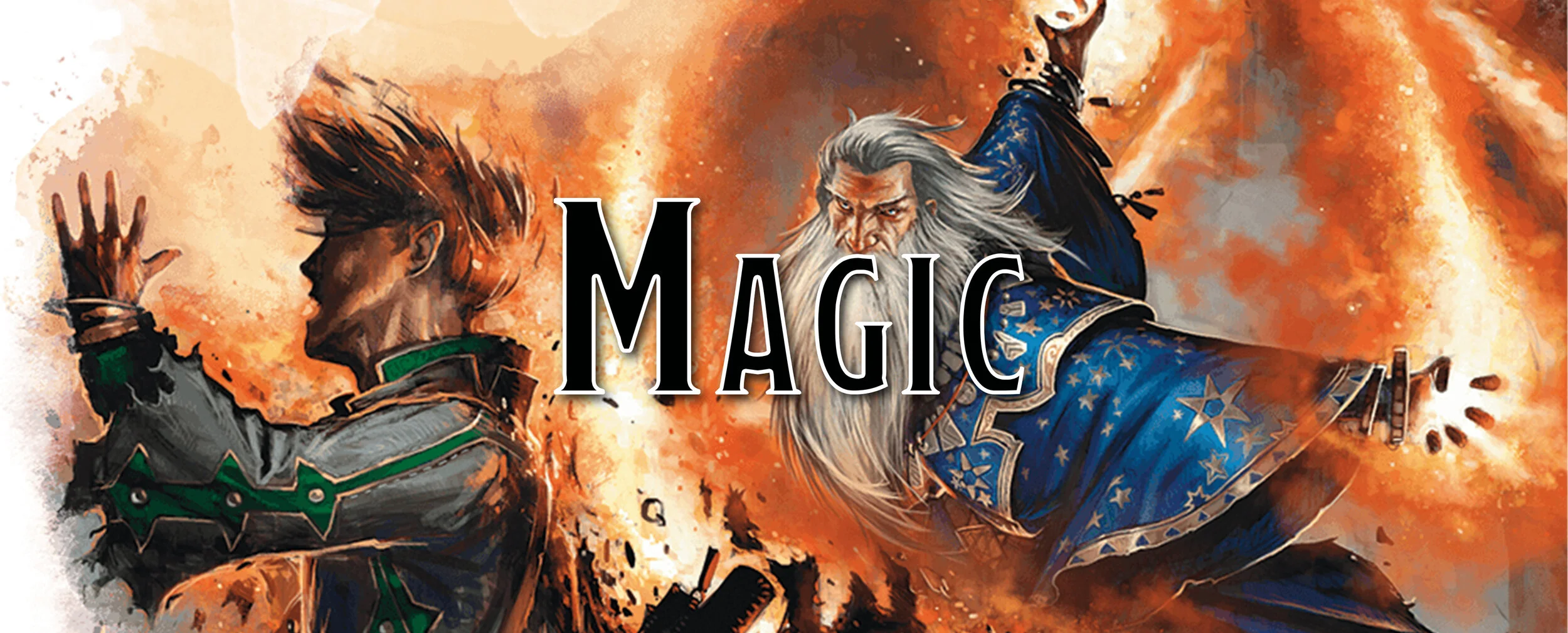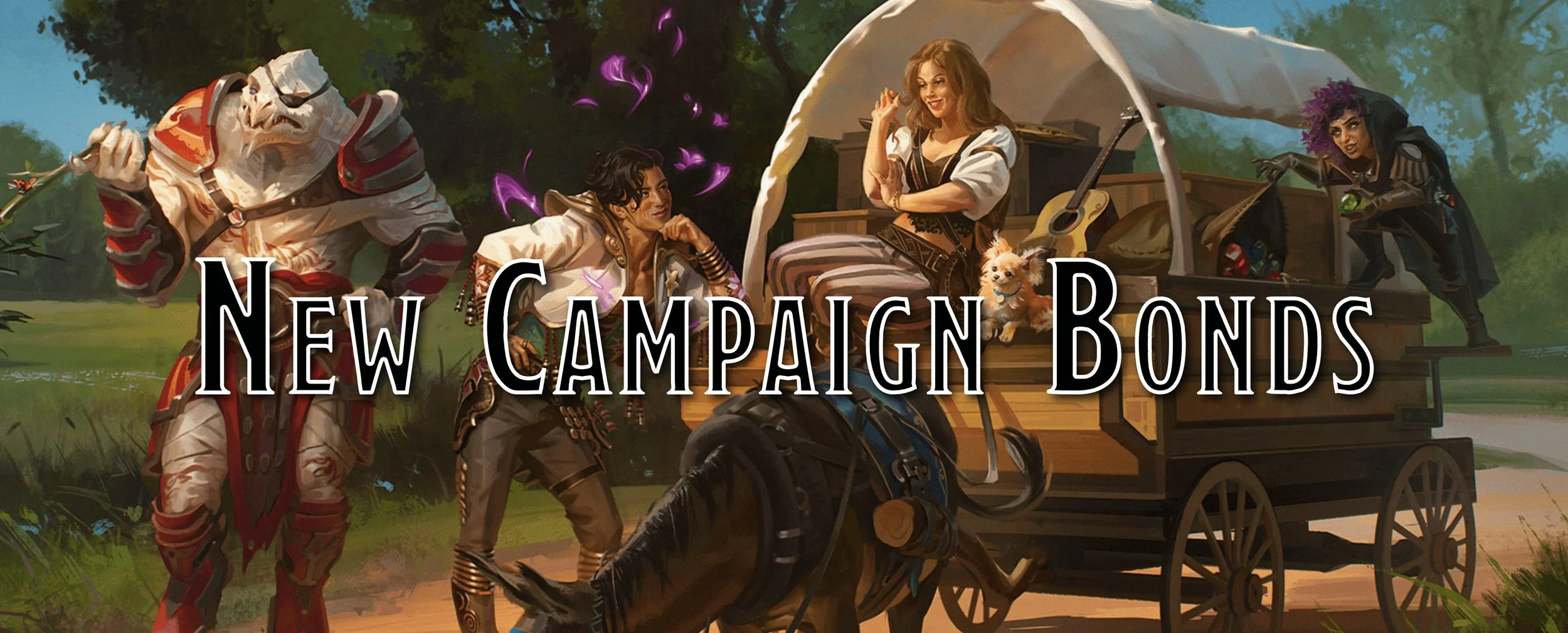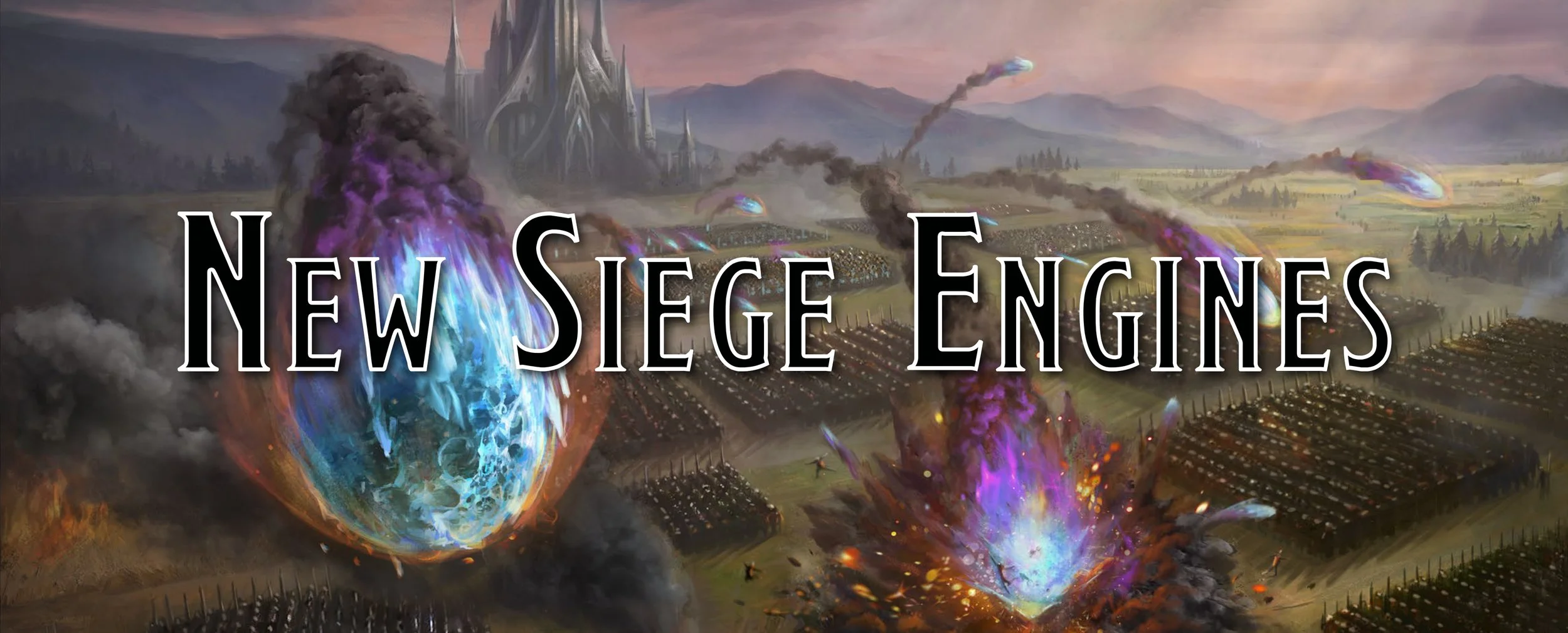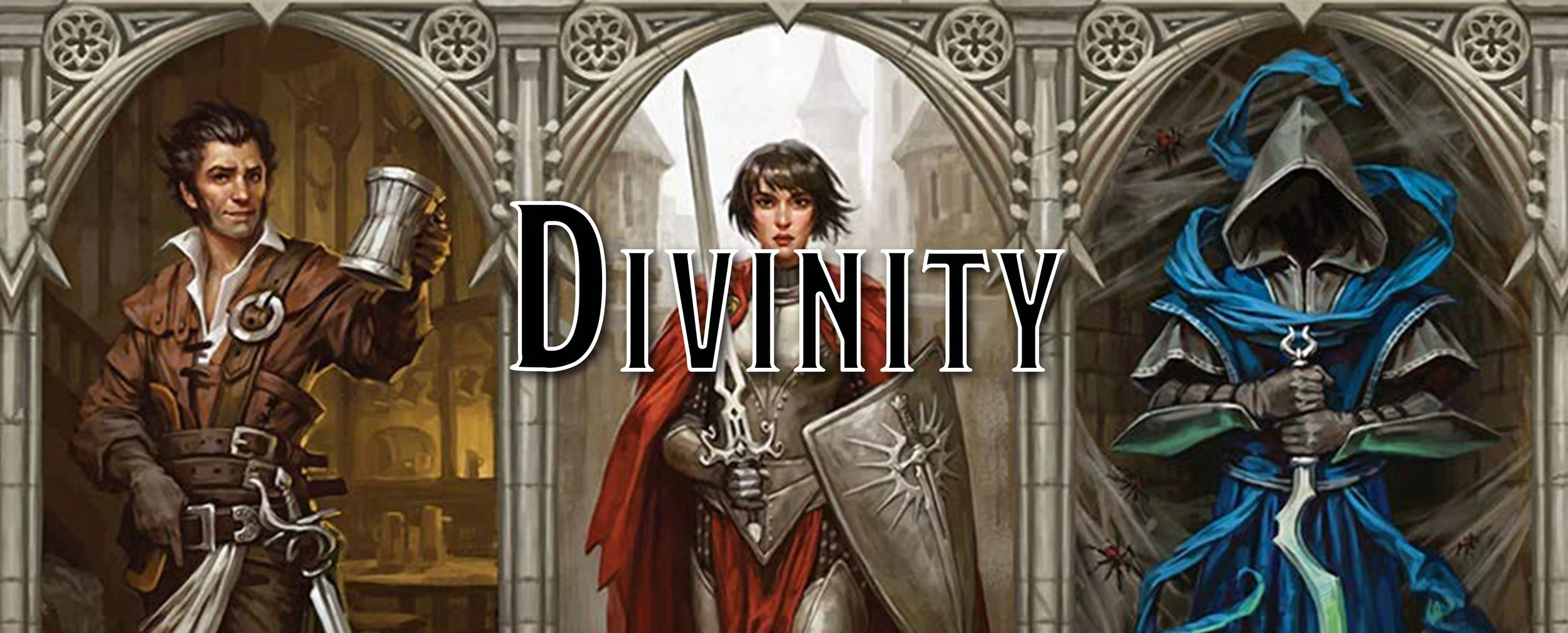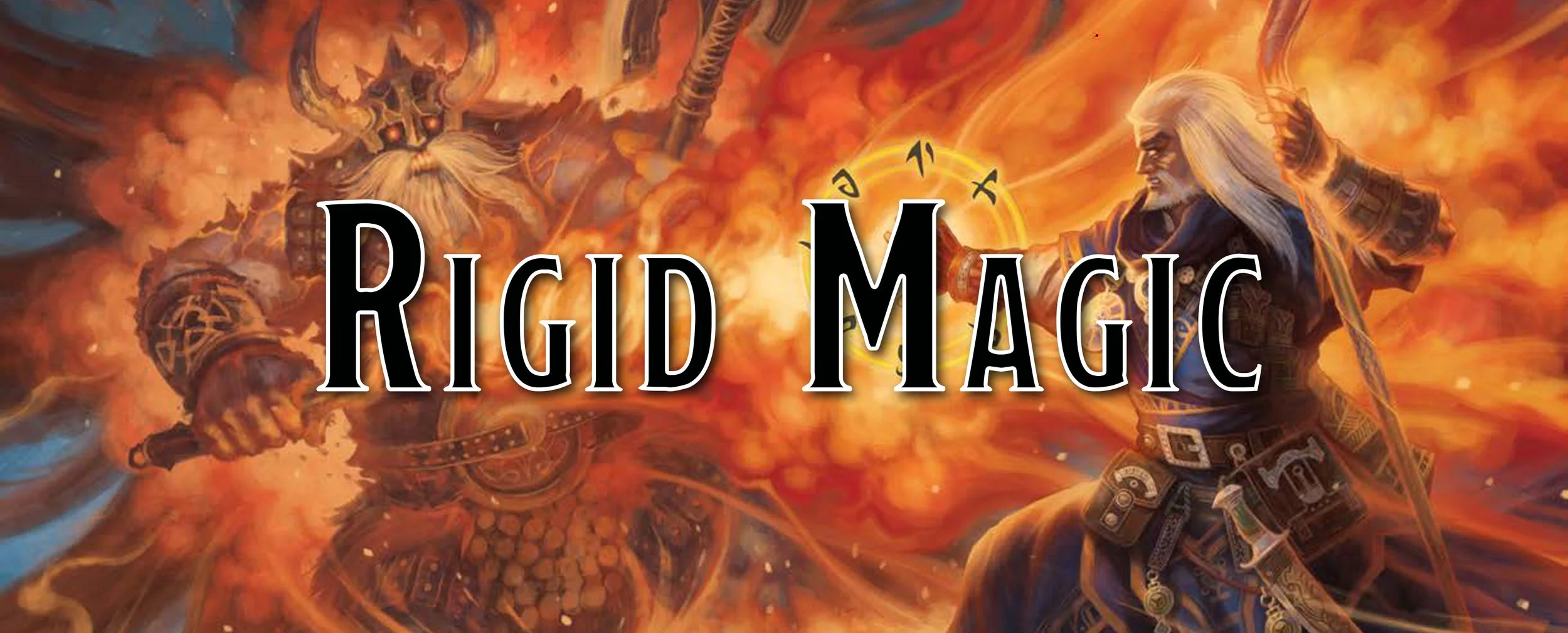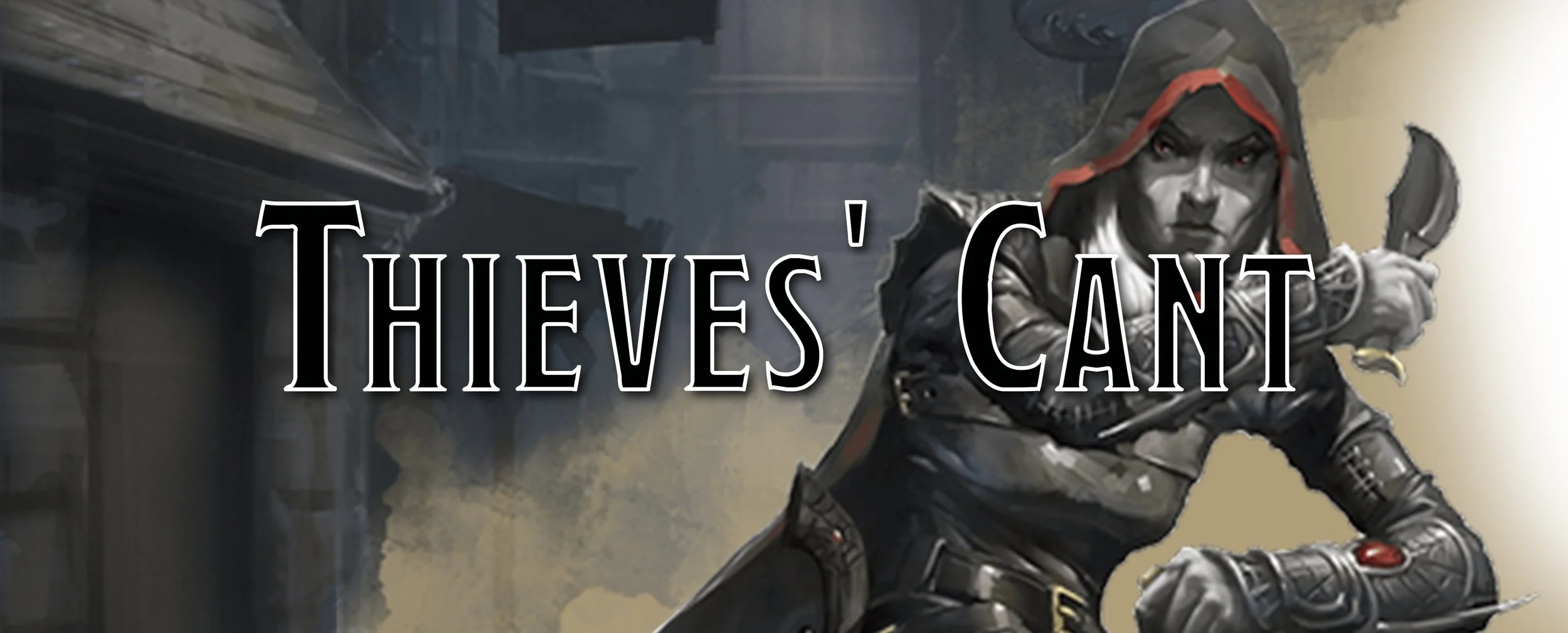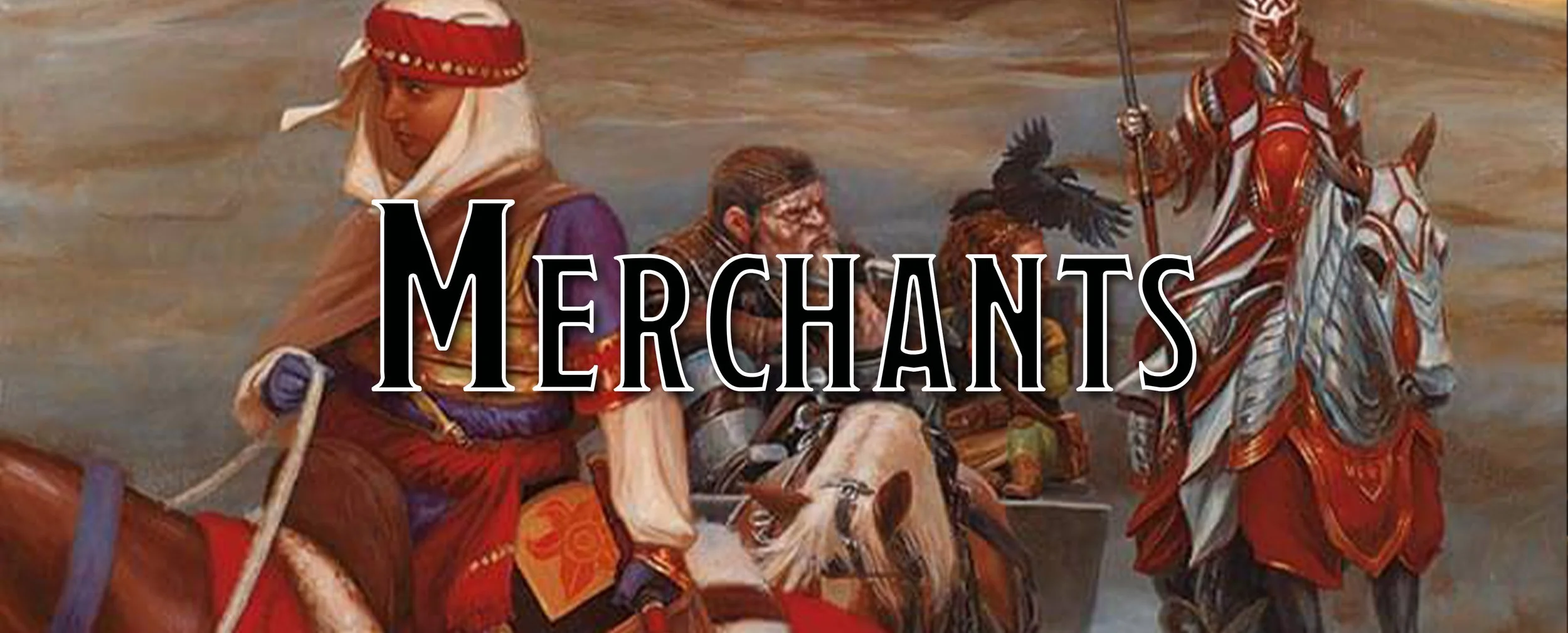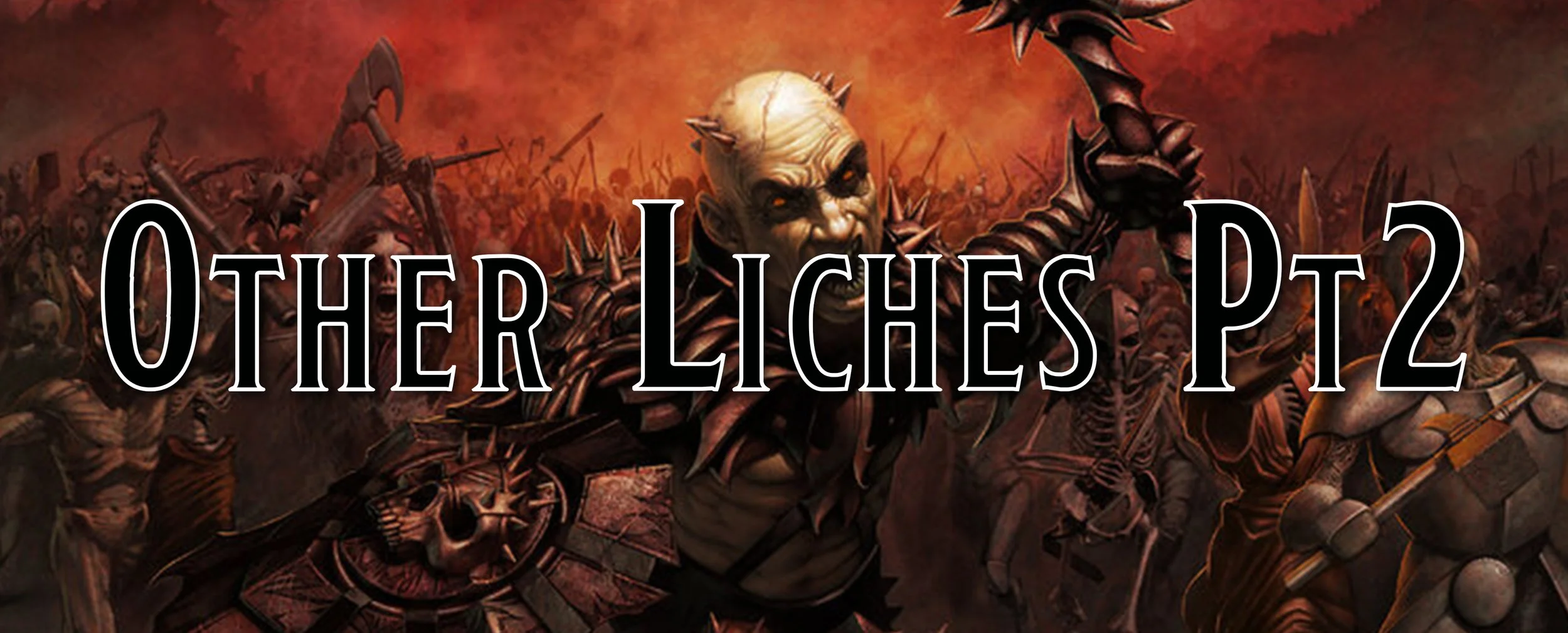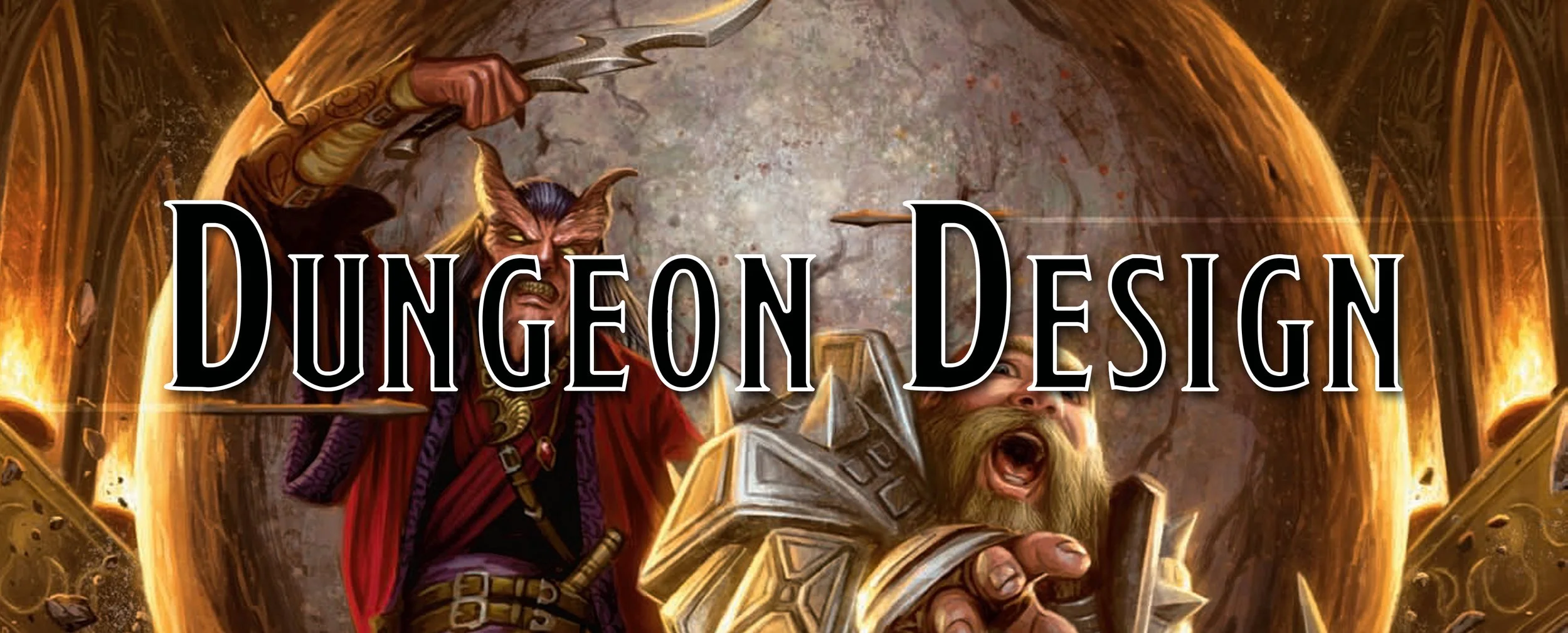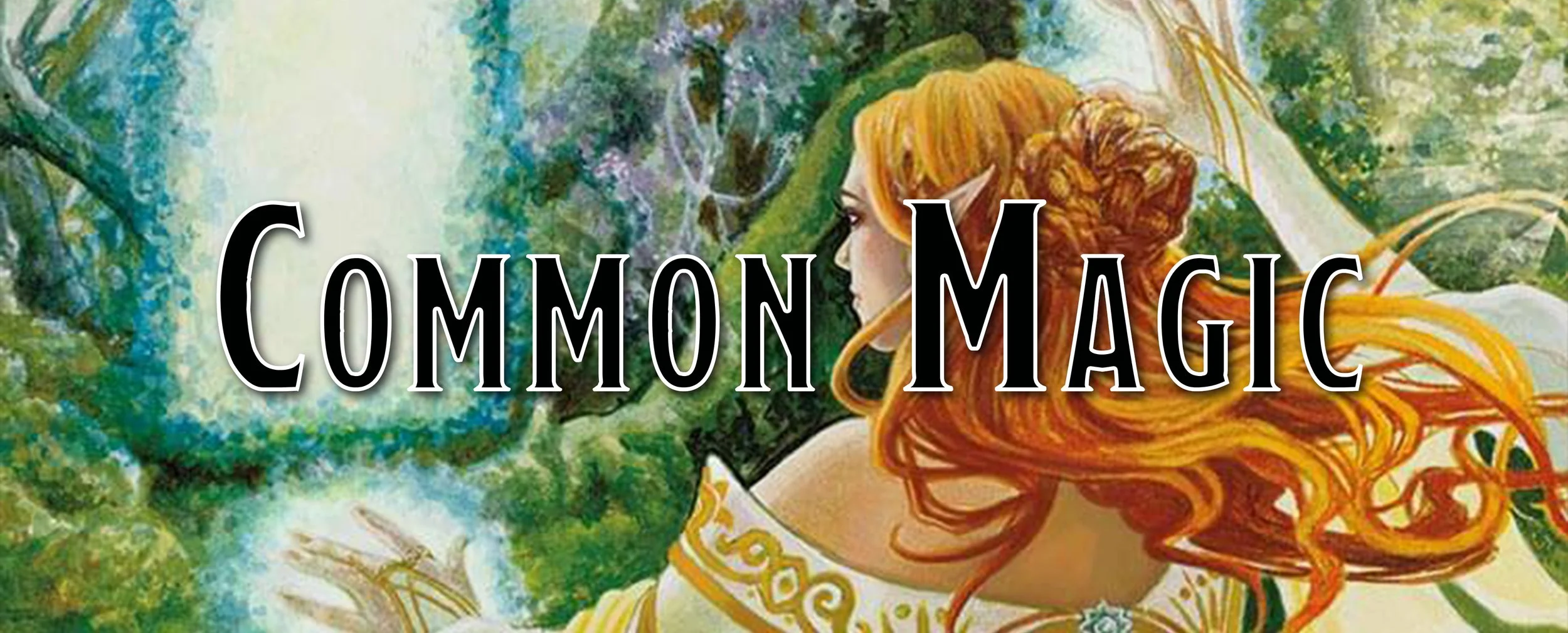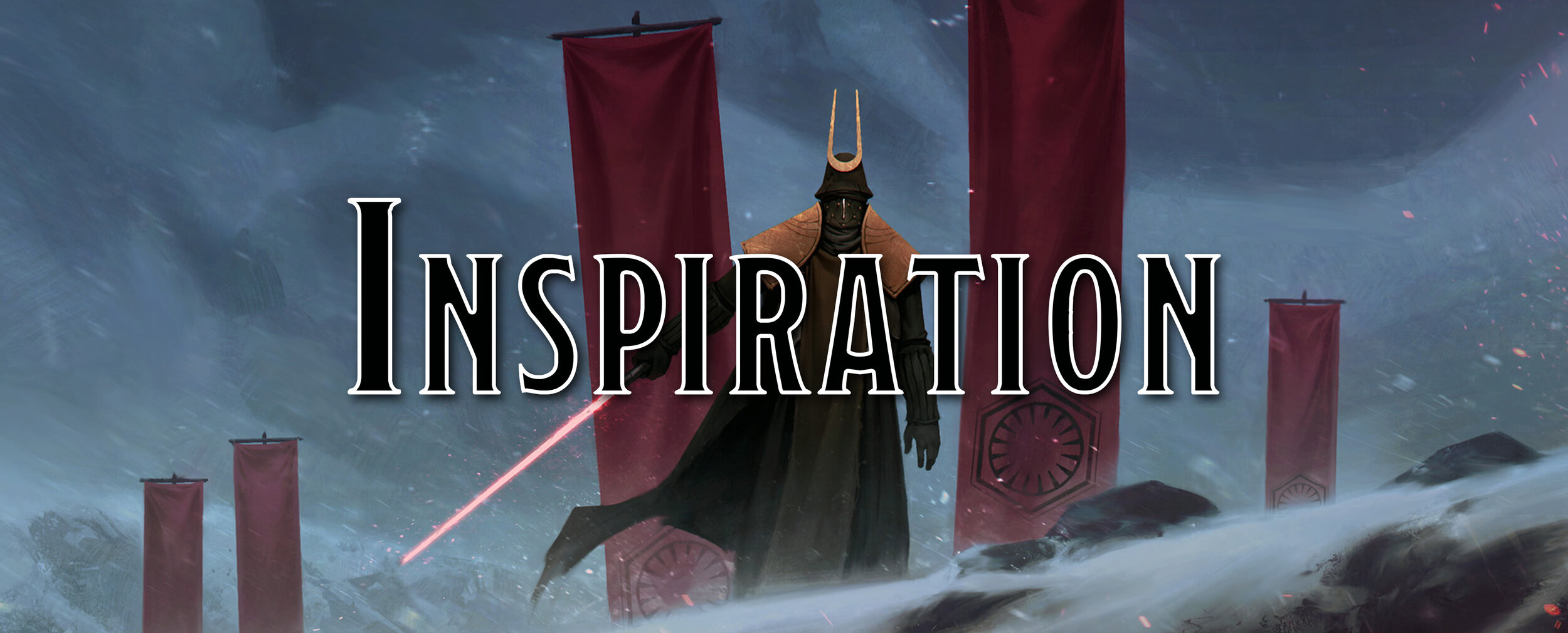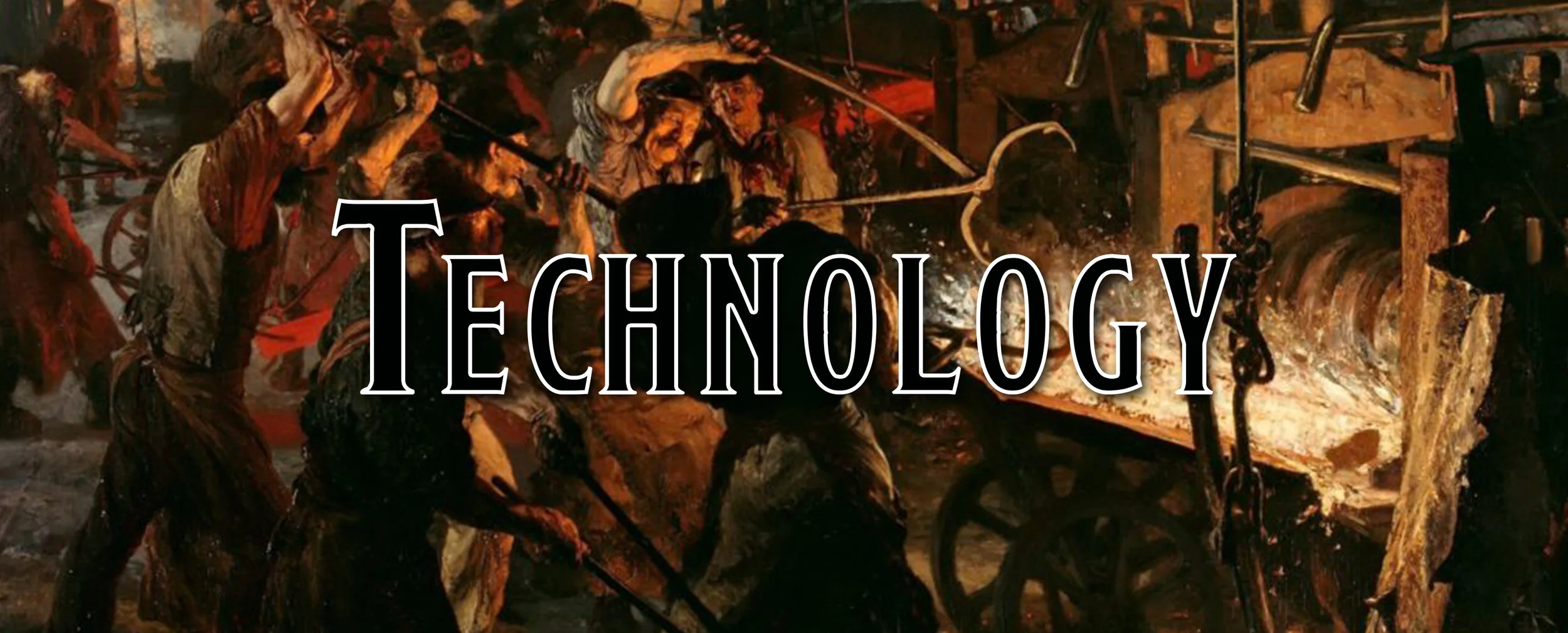Guide to World Building - Magic
Header Image: Player’s Handbook by Wizards of the Coast
What exactly is that mystical force that players call upon to launch a flaming ball of fireball at your defenseless goblin? Is this energy prevalent throughout your world? Does anyone have a chance at learning it? Or can only a rare few ever hope to access a cantrip, let alone a first-level spell?
The prevalence of magic in a world helps dictate how heroes and adventurers interact with the common folk and with monsters at large. If magic is so rare that only 1 in a million can hope to cast something as easy as mage hand, what does it mean for your party to face off against a lich?
Part 1 - Prevalence
The first thing to decide about magic is how prevalent is it in your world. Before you can decide where, or what exactly it is, you need to know how many people have access to it. If only a rare few ever have access to magic, then it means that it will largely be misunderstood by everyone, including the very learned and even those who can use magic. If almost everyone can use magic, there will be less superstition about those who use it as well as a greater understanding of at least the fundamental abilities that low-level magic can have.
Little Magic
A world starved of magic will see anyone that can cast a cantrip as someone to fear, to hate, to attack, and to be in awe of. Dozens of villagers might attempt to touch a wizard’s robes or bring their sick and injured to be healed, even though the wizard has no way to do so. They may get angry at someone who refuses to help, inciting fear and hatred towards them and even attempting to kidnap the wizard until they cause the fields to be full of crops and every broken bone and deformity fixed and healed.
While it might be easier in a city, as the chances of someone having used magic before in the city are greater, guards might come up with fake reasons for taking a spellcaster in. They might feel threatened by any type of magic, no matter how small and helpful, and may leap to conclusions when talking to a spellcaster. A simple conversation might make someone think that the wizard broke into their mind and forced them to sell something at a lower price than they normally would.
Fear and misunderstandings follow the magic-user and any who wield magical items. Some spellcasters might take advantage of this, like bards or clerics forming cults to false gods or ancient evil beings while charlatans claim they have powerful magic when in reality they only have a few sleight-of-hand tricks.
Mid Magic
If your world has a fair number of spellcasters, but magic isn’t extended to everyone, then the world sees magic with some superstitions but with a better understanding of its limitations in larger settlements. In tiny villages that rarely ever get visitors, magic could still be this alien and almost legendary ability. The town might still recall the one wizard that passed through their town centuries ago or how they had a cleric come through town that healed someone’s broken leg and how much it cost to do that.
For most in cities and the like, the lower class will have no access to magic, and anyone in their community that shows some magical aptitude might wallow and never get the lessons they need. It could be that a few communities raise some money to send them off to a proper school for them to gain knowledge, at least for a year or two, but it isn’t likely that that individual will return to their community to help them with the magic they learned. As for the wealthy, they’ll have access to lower levels of magic, like healing minor wounds or enchanted clothes for fancy balls. It would even be a point of pride if they displayed magical ability, all to show that they were better than the lower classes in their city.
The middle class would strive hard to access even minor bits of magic as a way to show off their wealth. They might save up a month worth of wages to buy a minor magical trinket that changes color or utters a phrase back on command, all to try and impress those around them. If they have some ability with magic, they would try and get into higher education positions to improve their magic, confident that if they could grow stronger, then they could elevate themselves to the ranks of nobility.
High Magic
In a high magic world, almost everyone has access to magic either from purchasing it or being able to sling a few cantrips. Much of magic is categorized and understood, with only the most powerful magic being wrapped in mystery. This doesn’t mean that everyone can throw out a fireball, but it could be that most can, or know someone who can cast a 0-level spell like a cantrip. Anyone that a group of adventurers might face will have access to a cantrip as a backup weapon and even remote villagers won’t be impressed by someone who can conjure a few minor magical tricks.
Items could be for sale, especially in a more industrial society, and if someone can shortcut some manufacturing with magic they will. Much of society will be built upon magic with politicians and military leaders ensuring they only discuss information inside of magically protected rooms that prevent scrying or eavesdropping.
There may even be certain gods willing to just hand out magical powers to any who give their service to the church - making it so that having magic is within anyone’s grasp so long as they simply serve, tithe, or provide community service for the church.
Part 2 - Magic’s Role In History
Now that you have determined how prevalent magic is, you can then begin imagining a world that is exposed to magic. If magic is highly prevalent then strange sights and awe-inspiring building feats may pop up almost everywhere, then again maybe you want a world that is very limited in magic but still want strange sights. In this situation, you could have it so that there was once magic everywhere and that everyone could use some piece of it before it was almost completely stripped from the world. This gives reasons for adventurers to go into ancient crypts and dungeons to find lost fragments of magical knowledge and maybe push the world they live in back to the age of magic.
No matter how much or how little magic is in your world, its very existence is enough to make it have an important role in history. If there is almost no magic in your world, then that means that anyone who studies magic can become far more powerful than a commoner, a knight, or even a king. They might only be able to cast a few spells a day, but they can use their power to help them raise the social circles, assassinate a king or do anything else that they put their minds to. Depending on how you envision people in your world using magic, its use and history could hold a shadow over all wizards in the current day.
If everyone has magic in your world, then there is no way that history could escape its touch. You might not be able to throw a gnome without hitting a temple to some sort of deity, modern-day manufacturing might be available for certain things, like fabrics, all powered by the endless energy of magic. Magic could become such a crutch for a society that there is no need to have a basic understanding of aerodynamics, energy consumption, or geometry because magic can just make things work with a snap of a finger. Society, when faced with any challenge, would simply call forth magic to fix it and continue since they don’t have any other options they could think of.
Part 3 - Where It Comes From & How It Works
Just what is magic? You’ve probably heard that from a player, or maybe you asked yourself that while trying to get to sleep at 2 am on a Sunday night. Magic is magic. It’s indescribable, it’s the ability to do something that defies physics and the laws of the universe. It is the ability to create out of nothing, to bring forth power while you lack physical strength.
Magic is the creation and destruction of energy, given form by willpower. It is both known and calculated, but mysterious and secretive.
I could go on, but you get the point. Magic is just magic. For your world, magic could be this unknown power that makes kings quiver in fear, or it could be well studied and anyone who has a pulse can harness a bit of its mysterious energy. There are a wide variety of ways that magic can exist in your world, but it's not something you need to have quantified. By defining and codifying exactly what magic is, it starts to lose some of its magic - this effect works better in high magical worlds while low magic worlds would suffer if magic were to be understood.
From The Gods
Perhaps magic is only the extension of the will of the gods. Gods are magical in nature, and when a wizard or cleric uses magic, they are drawing on the power of the gods. This would make it so that even wizards are using divine power, but they instead channel the magic differently than someone like a cleric who focuses on healing magic. These gods might be grouped based on what magic they provide with basic categories including nature, divine, and arcane magic, and you can further refine that into even more direct groups like arcane-necromancy or divine-transmutation magic.
In this situation, it might be required that all spellcasters at least pay lip service to a deity, as their ability is based on the connection to one. A wizard might change their fealty to another deity, but they would first need to be guaranteed that they will keep the same, if not more, power as they had with another deity before they cut ties.
This could also mean that magic, at least low-level magic, is freely available to the populace so long as they continue to tithe or do great works in the name of their deity. Adventurers are sought after by churches as they are generally doing important works, though if they misuse their power or commit atrocities, their power is revoked - though there are always gods who enjoy such acts and will offer their power to the spellcaster.
From A Repository
With a repository, magic comes from a single place, like the Weave or even just a singular deity of magic. This means that anyone can access magic so long as they learn how exactly to do so. This makes powerful patrons important to those less gifted with intelligence, as clerics and warlocks would be unable to access it without help from a deity or patron.
This repository could be in an extraplanar place, a more theological ‘place’, or could be part of the very earth itself, deep within the core of the planet. Depending on where, and how, this repository is set up, there could be events around it like those who wish to shut it off or restrict access to it to only those they want. The gods might draw their power from this same repository, making them very interested in ensuring no one does that, or they may have their own power sources to draw from and grant to their clerics.
From Physical Exertion
Inside of everyone is a well of magic that slowly recharges throughout the day. Everyone is gifted with some magic, but to summon forth that magic, they need a way to tap into that power as well as the knowledge of how to utilize the magic when they want, not in weird bursts or only in extreme events. This limits how much magic an individual can access, if they are even able to access it, but is something that can be trained. As the individual practices and uses magic more and more, they can start building up their inner reservoir of magical strength and, like a muscle, it will steadily grow bigger as they continue to exercise it.
For some societies, they might see it as imperative for the safety of their empire that everyone is given some training in magic with schools helping everyone learn to access this magic. Then again, some societies might keep all this information in the dark, only teaching their spies and a select group of elite soldiers the true secrets of magic. If only the elite are even given this knowledge, it ensures that they can keep the lower classes under the heel and ensure their power remains steady.
From Energy
Everything in our world has energy, be it kinetic, thermal, potential, chemical, mechanical, or even nuclear. This energy is what a wizard taps into, draining the natural world around them and channeling it into their magic. Wizard towers might be set up near waterfalls or volcanos, the perfect places to capture the incredible amount of released energy that is formed by the natural world. The further one is from a natural source of this energy, the harder it is to power the magic they wield in their hands. This would mean that spells cast at night might be weaker than ones cast in the day simply because the sun’s power is incredibly limited and only partially available thanks to the moon reflecting it. On nights with no moon, it might be almost impossible in certain areas of the world to even access magic if there are no natural sources of converting energy nearby.
This type of magic means that spellcasters are fueled by the natural world and that there is latent magic in almost everything around them. Desert sands would unleash thermal energy throughout the night, allowing desert magic-users access to magic. Crashing waves along a beach would offer up mechanical energy to clerics who convert that energy into healing magic, and alchemists could channel chemical reactions and that energy into new inventions, magical potions, and elixirs.
Combining It All
As you slowly begin understanding the magic of your world, you can begin imagining how the magic has shaped it. You don’t need to come up with everything immediately, but as you begin building the foundations, new opportunities and ideas will reveal themselves. You can conduct thought experiments where some societies choose to revel in their access to magic, while others turn to fear, hunting any who don’t work directly for the government. Natural wonders around the world might have once formed from powerful magic set off by ancient wizards whose secrets are now long lost, or it could be that anyone has the chance to leave a lasting mark on the world so long as they devote themselves to the study of magic.
Like what we are doing here?
Support us on Patreon!
You’ll get early access to deep dives, our Homebrew Hoard, monster stat blocks and more!
Follow us on Twitter to keep up to date on everything we talk about!

